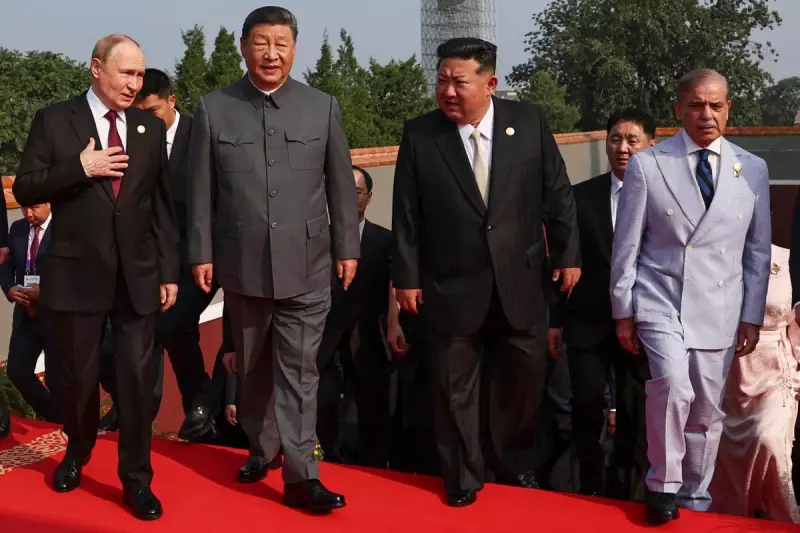
In a statement that is set to send shockwaves through diplomatic circles, former US President Donald Trump has openly declared his intention to foster a 'great relationship' with some of the world's most notorious strongmen if he returns to the White House.
The revelation came during a candid interview on the 'All-In' podcast, where Trump was questioned on how he would handle international relations in a potential second term. His response pointed towards a dramatic shift away from traditional Western alliances.
A Controversial Foreign Policy Vision
When specifically asked about dealing with Russian President Vladimir Putin, Chinese leader Xi Jinping, and North Korea's Kim Jong-un, Trump was unequivocal. He stated that he would 'get along with all of them', adding that he had previously enjoyed a strong rapport with each leader.
This approach starkly contrasts with the current Biden administration's stance, which has taken a firm line against Russia's aggression in Ukraine and China's growing global influence.
Alarm Bells for US Allies
Trump's comments are likely to trigger significant alarm among key NATO partners and democratic allies in Europe and Asia. His apparent willingness to cosy up to authoritarian regimes suggests a potential realignment of US foreign policy that prioritises personal diplomacy over longstanding strategic partnerships.
This isn't the first time Trump has expressed admiration for autocratic leaders. His first term was marked by similar praise, but these latest remarks provide a clear preview of the diplomatic strategy voters could expect in a 2024 Trump presidency.
The Context of a Comeback Bid
These statements emerge as Trump solidifies his position as the presumptive Republican nominee for the upcoming presidential election. His views on foreign policy, particularly towards rivals and adversaries, remain a central and deeply controversial pillar of his political platform.
As the election season heats up, expect Trump's relationships with global leaders—both friend and foe—to become a major focal point of debate, scrutinised for its implications on international stability and America's role in the world.





